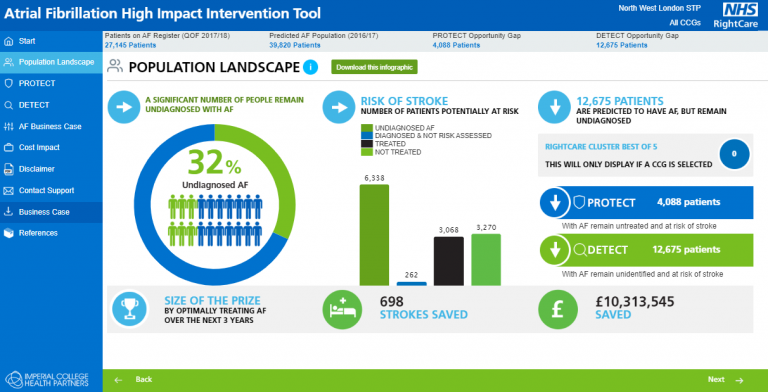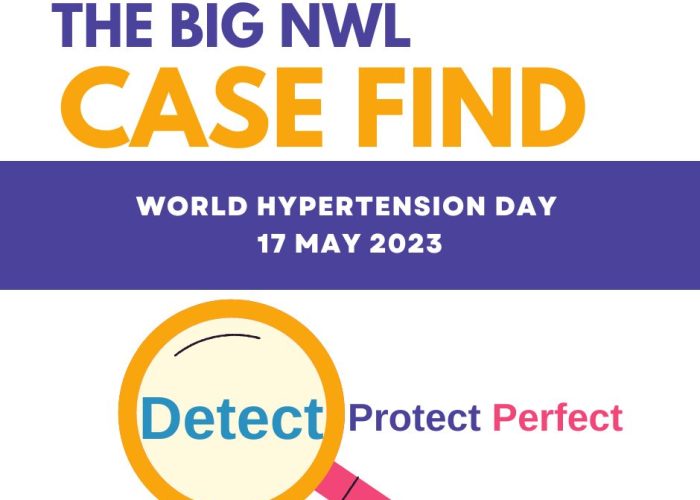 ICHP has been working with NHS RightCare to produce an interactive dashboard that will help commissioners make more informed decisions on local care for patients with atrial fibrillation. Head of Data and Analytics Julia Wilkins explains more.
ICHP has been working with NHS RightCare to produce an interactive dashboard that will help commissioners make more informed decisions on local care for patients with atrial fibrillation. Head of Data and Analytics Julia Wilkins explains more.
Atrial fibrillation (AF) is an irregular and often fast heart rhythm and is the most common heart rhythm disturbance. Patients with AF have a five-fold higher stroke risk than those without AF (Stroke Association, 2017). Despite the serious impact of AF, it often causes no symptoms, and many people are unaware they have the condition.
The NHS Long Term Plan sets the ambition for the NHS to help prevent over 150,000 heart attacks, strokes and dementia cases over the next 10 years and outlines how we, and partners in the voluntary and community sector and in other national organisations, will meet this ambition.
I am proud that through our work here at ICHP we have been able to collaborate with NHS RightCare to develop this Atrial Fibrillation High Impact Intervention Tool to help support commissioners to realise this ambition. NHS RightCare use data and evidence to identify opportunities for innovation in healthcare, which is a fundamental part of our work at ICHP, so it has been a natural opportunity to work together.
The aim of our collaboration was to produce an effective tool to support commissioners to measure the value of identifying and treating patients with AF along with the impact of screening and of treatment-based interventions. This would help reduce variation in care for these patients.
Health systems, supported by their RightCare delivery partner, can access the tool, which is hosted on the ICHP website. It’s incredibly user-friendly and interactive and includes the functionality to export an infographic to make it easy to visualise and share local data insights.
Using Quality Outcome Framework data published by NHS Digital and national Cardiovascular Intelligence Network (NCVIN) prevalence estimates the tool helps an organisation identify opportunities for improving the diagnosis (detect) and management of AF (protect). It then quantifies costs and savings associated with these options before producing an exportable business plan which can be used to make the case for transformation in the local health system.
With commissioners being dispersed across the UK we have been involved with training and supporting NHS RightCare to maximise the reach of the tool and its recognised added value for their work. We have also been sharing the tool at national conferences including the 2019 Public Health England CVD conference and NHS Expo.
This tool has huge potential for improving the care of people with AF whilst at the same time saving resources by providing patients with timely access to anticoagulation medication for the prevention of stroke for example. The NHS is putting increasing emphasis on preventative rather than reactive treatment options, and this tool is a great example of using publicly available NHS data to support this prevention strategy to avoid more serious, and potentially more costly, health problems and treatments associated with stroke, which is not only better for the patient but for the wider system too.



